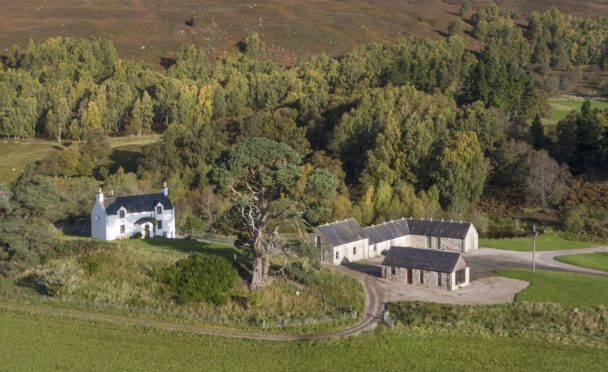MSPs are poised to debate calls for greater land reform and regulation in Scotland in the wake of the rise of so-called “green lairds”.
A motion tabled by Highlands and Islands Labour MSP Rhoda Grant will be considered at the Scottish Parliament on Thursday.
It expresses regret for the “commodification and financialisation of the climate emergency through the market for land”.
And the motion calls on the Scottish Government to “consider land-market regulation and public expenditure controls” to achieve greater equity and sharing of benefits.
In recent weeks, we have been reporting fears that communities will be priced out of owning and benefitting from local land as result of the burgeoning interest from so-called “green lairds”.
The term has been used to describe businesses and others seeking to off-set their carbon emissions and take advantage of government grants by buying land for initiatives such as tree planting, as well as others who are focused on investing and generating returns through trading in carbon credits.
‘Just transition’
Speaking ahead of Thursday’s debate, Ms Grant said “The arrival of the ‘green lairds’ has exposed how private interests are able to exploit Scotland’s unregulated land markets.
“This week’s debate is an early opportunity in the new session of this Scottish Parliament to explore the issues and get behind the need for further land reform to protect and advance the interests of local communities across Scotland.
“If we are to achieve a just transition through the climate emergency and as we emerge from the pandemic, further land reform and land regulation are going to be essential.
It has been great to see The Press and Journal and The Courier giving this issue coverage over recent weeks and helping awaken Scotland to this important issue for a more just and fair future.”
“It has been great to see The Press and Journal and The Courier giving this issue coverage over recent weeks and helping awaken Scotland to this important issue for a more just and fair future.”
Standard Life Investments Property Income Trust (SLIPIT) recently announced it had spent £7.5 million buying 1,447 hectares of upland rough grazing and open moorland in the Cairngorm National Park, to be “used as part of the company’s carbon strategy”.
It followed plans from craft beer giant Brewdog to create a “lost forest” at the 9,300-acre Kinrara Estate in the Cairngorms to offset carbon produced at its brewery.
Hamish Trench, chief executive of the Scottish Land Commission, said earlier this month that the agency was focussed on this “rapidly developing influence on the land market”, and was aware that it brings “risks and opportunities”.
He also said the “option” of establishing community wealth funds was being considered to ensure local groups benefit, while in addition there was consideration of “mixed governance models” for land, which bring together private sector, public sector and communities in a “joint ownership” structure.


